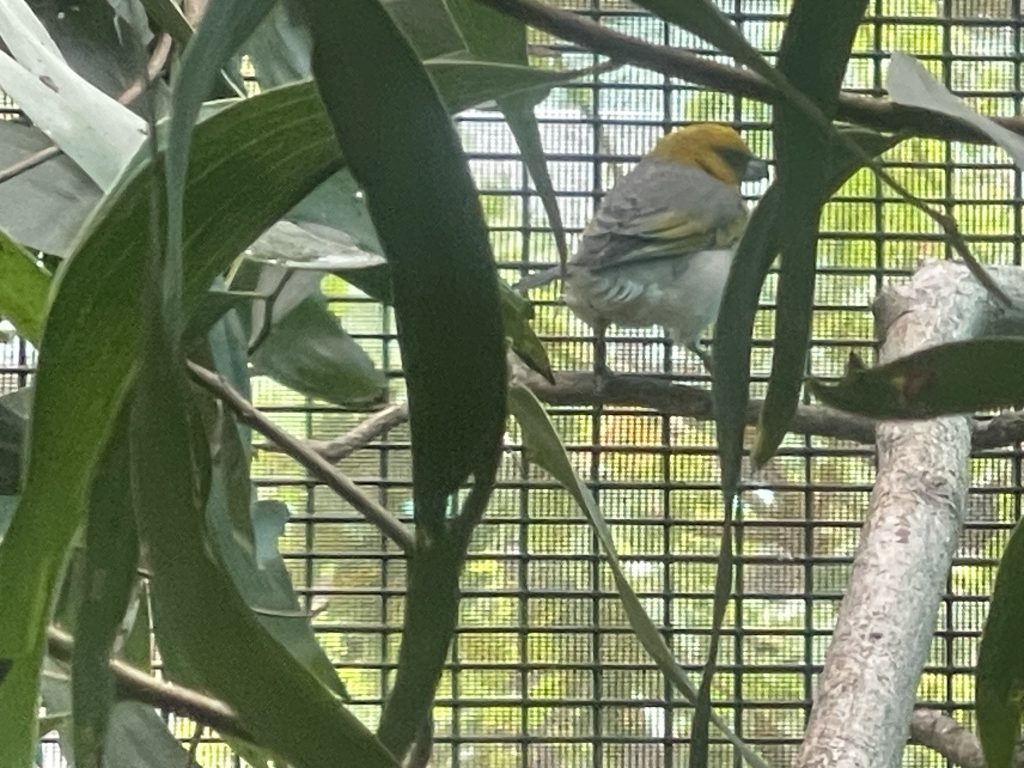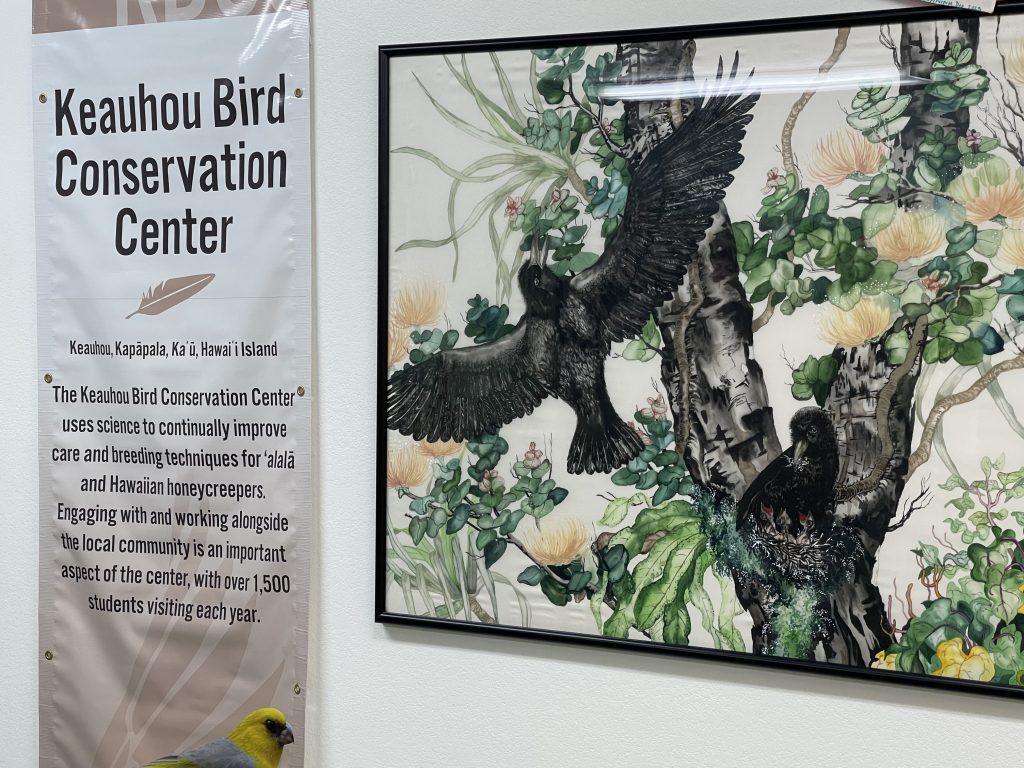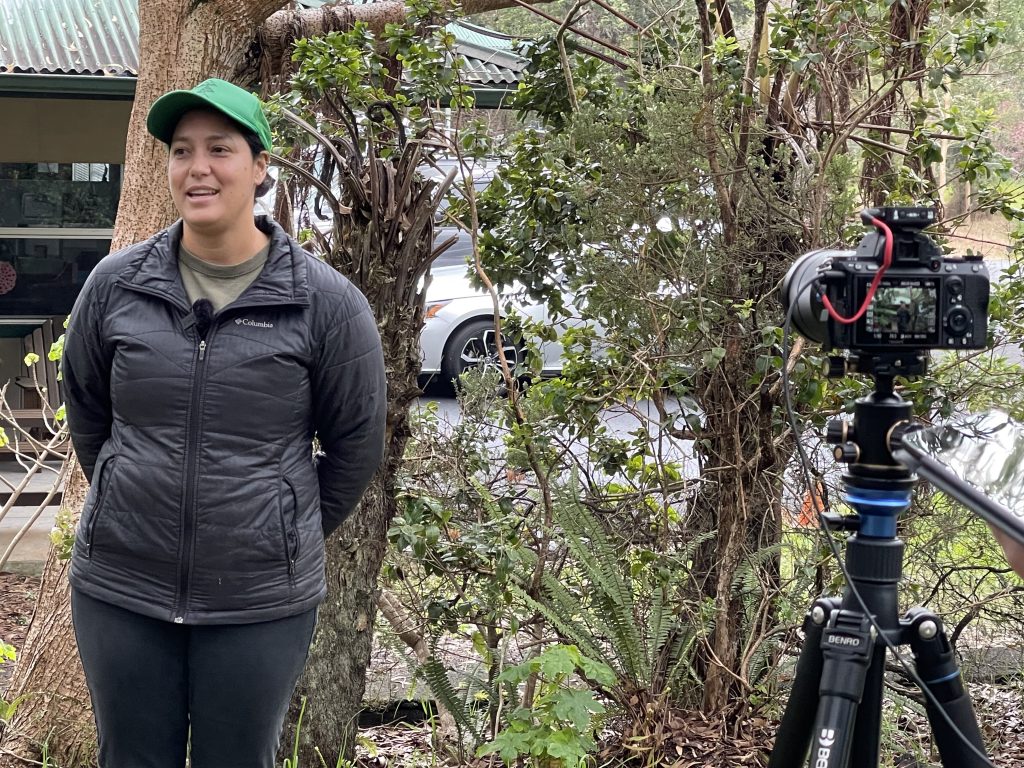Take a virtual tour at a conservation center on Big Island showcasing endangered Hawaiian birds
Students across Hawai‘i are being offered rare access to learn about endangered Hawaiian forest birds on the Big Island.
The Keauhou Bird Conservation Center, near Volcano, is one of two centers operated through a partnership between San Diego Zoo Wildlife Alliance, U.S. Fish and Wildlife Service, and the DLNR Division of Forestry and Wildlife, for the care and perpetuation of numerous critically endangered Hawaiian forest birds.
During this ‘Year of the Forest Birds’ (ka Makahiki o Nā Manu Nahele), the focus is on five species that are really in trouble. One way to spread information and to educate keiki is through the production of what is known as a virtual field trip: a collection of 360˚ images, videos, and interviews that allow students to learn about places and species they might not get to see in person.
Click here to join the virtual field trip.
Dr. Josh Atwood, DOFAW Information and Education Specialist is producing the latest field trip, and has created several others over the past four years.
“We really started this program during COVID, thinking people were unable to get out of their classrooms and to see different places around Hawai‘i,” Atwood said. He explained that after the pandemic virtual field trips remained a good educational tool because not everyone can visit ecologically sensitive places like KBCC in person. Other entries in the virtual field trip program include visits to closed areas like the laboratory for the Snail Extinction Prevention Program or the site of Kamehameha III’s summer palace at Kaniakapūpū, where in-person classroom visits would not be possible. “With a virtual field trip, a class anywhere in Hawai‘i can experience the center and develop an appreciation for the state’s forest birds.”
In late February, armed with a collection of cameras and technology, Atwood worked with the ‘host’ of the conservation center virtual field trip, wildlife care supervisor Lisa Mason. First standing outside the facility, Atwood records Mason as she delivers her introduction. “On your field trip today, you’ll get to see our facility and some of the birds who call this center their home. ʻAlalā, Palila, ʻAkikiki, ʻAkekeʻe, and Kiwikiu,” she says into the camera.
“By putting a tour into a virtual format, it not only makes it available to a broader number of classrooms, but students can explore it at their own pace. It’s a great way to have something that would be good in-person and enhance it by having it as a virtual field trip experience,” Atwood added.
Once inside the center, taping continues, first in the center’s “keiki corner” surrounded by a floor-to-ceiling mural of forest birds, gifted by local artist Kathleen Kam. “Here on this mural, you can see many of the birds that live across our islands, represented in their native habitats,” Mason explains.
She and the cameras then moved into the library which features the second part of the mural. It’s dedicated to the native Hawaiian crow (ʻAlalā), which viewers will see in real life, once the shades are raised. In addition to ecological education, the virtual field trip also addresses the importance of forest birds and culture.
“To Kānaka Maoli, our native Hawaiian birds are very important to us. They have many roles in the forest as forest engineers,” Mason said. “They help to pollinate plants and to spread seeds to regenerate forests.”
According to Atwood, acceptance and utilization of previously produced virtual field trips has been good, and his team is currently working with the Department of Education to align the virtual field trips with curriculum standards.
“We’ve only had our virtual field trips online for a few years and we have something like 70,000 page views. We’ve heard from teachers and students how useful the virtual field trips are,” Atwood said. “There are clearly places where entire groups of people cannot travel, so this educational tool allows us to provide the next best thing.”
Sponsored Content
Notice: Function the_widget was called incorrectly. Widgets need to be registered using
register_widget(), before they can be displayed. Please see Debugging in WordPress for more information. (This message was added in version 4.9.0.) in /mnt/efs/html/wp-includes/functions.php on line 6114












